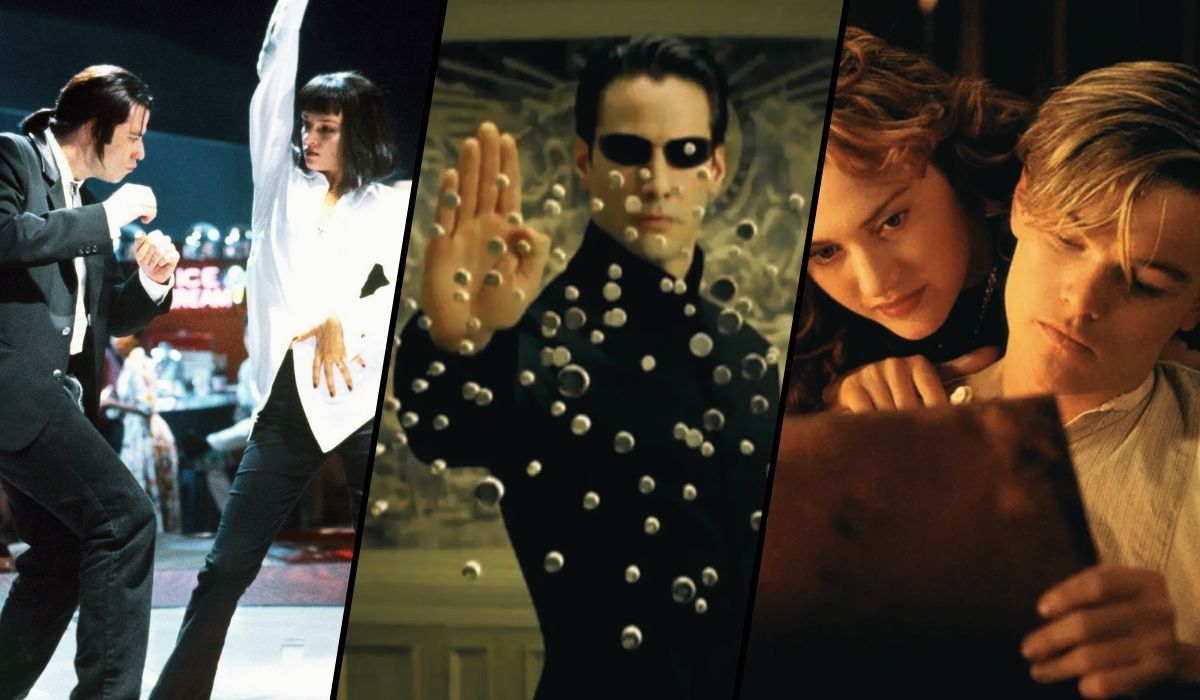10 Classic ‘90s Movies That Changed Everything for Hollywood

The Golden Decade: Hollywood's Transformative '90s
Jurassic Park: The Dawn of Cinematic Dinosaurs
Steven Spielberg's groundbreaking masterpiece, Jurassic Park, rewrote the rules of blockbuster filmmaking in 1993. Its seamless blend of animatronics and CGI created lifelike dinosaurs that captivated audiences. The film's groundbreaking special effects had a profound impact on the industry, inspiring countless subsequent sci-fi and adventure flicks.
The Matrix: Where Philosophy Meets Action
In 1999, the Wachowski sisters' The Matrix redefined the cinematic landscape with its fusion of action and existentialism. Neo, a computer programmer, unravels a shocking reality where the familiar world is a simulation. Its visually stunning special effects, including the iconic "bullet time" sequence, introduced a new aesthetic to action films.
The Blair Witch Project: Horror's Found-Footage Revolution
"Found footage" horror took off with The Blair Witch Project in 1999. Its low-budget realism and improvised dialogue created a chilling sense of authenticity, blurring the line between fiction and reality. The film's viral marketing propelled it to cult status, showcasing the power of independent filmmaking.
Titanic: Epic Romance Meets Cultural Phenomenon
James Cameron's 1997 masterpiece, Titanic, became a cultural phenomenon. The tragic love story between Jack and Rose resonated with audiences worldwide. With a production budget of $200 million (a record at the time), the film achieved critical and commercial success, winning 11 Oscars and captivating audiences with its stunning historical details.
The Lion King: Disney Animation's Triumph
In 1994, Disney's The Lion King soared to the forefront of animation. Its vibrant characters, unforgettable songs, and timeless story cemented the studio's dominance in the genre. The film's breathtaking visuals and iconic soundtrack inspired a Broadway production, sequels, and a live-action adaptation.
Pulp Fiction: Tarantino's Maverick Masterpiece
Quentin Tarantino's 1994 Pulp Fiction shattered conventions with its non-linear narrative and witty dialogue. The film blended black humor, stylized violence, and cultural references, earning critical acclaim. It demonstrated the power of independent cinema and inspired countless aspiring filmmakers.
The Sixth Sense: A Twist That Transformed Suspense
M. Night Shyamalan's 1999 The Sixth Sense left audiences reeling with its shocking plot twist. The film explored the supernatural through the lens of child psychology, creating an atmosphere of suspense from start to finish. Its success solidified Shyamalan's reputation for crafting mind-bending stories.
Forrest Gump: A Life of Triumph and Legacy
Robert Zemeckis' 1994 Forrest Gump celebrated both cultural and technical achievement. The film followed Forrest, a resilient man with a low IQ, through key moments in American history. Its innovative use of digital effects allowed for seamless integration with real footage, setting a new standard for visual storytelling.
The Mummy: Adventure Meets Horror, Rewritten
The Mummy, released in 1999, revived the adventure-horror genre. Brendan Fraser's adventurer teamed up with Rachel Weisz to combat an ancient Egyptian priest seeking vengeance. The film's blend of humor, action, and special effects (including cutting-edge motion capture) made it a blockbuster hit.
The Silence of the Lambs: Hannibal's Harrowing Legacy
In 1991, The Silence of the Lambs introduced the iconic Dr. Hannibal Lecter. Jonathan Demme's psychological thriller set a new standard for crime and serial killer films. Jodie Foster's FBI agent enlisted Lecter's (played by Anthony Hopkins in an unforgettable performance) help to track a murderer, delving into the depths of human darkness.